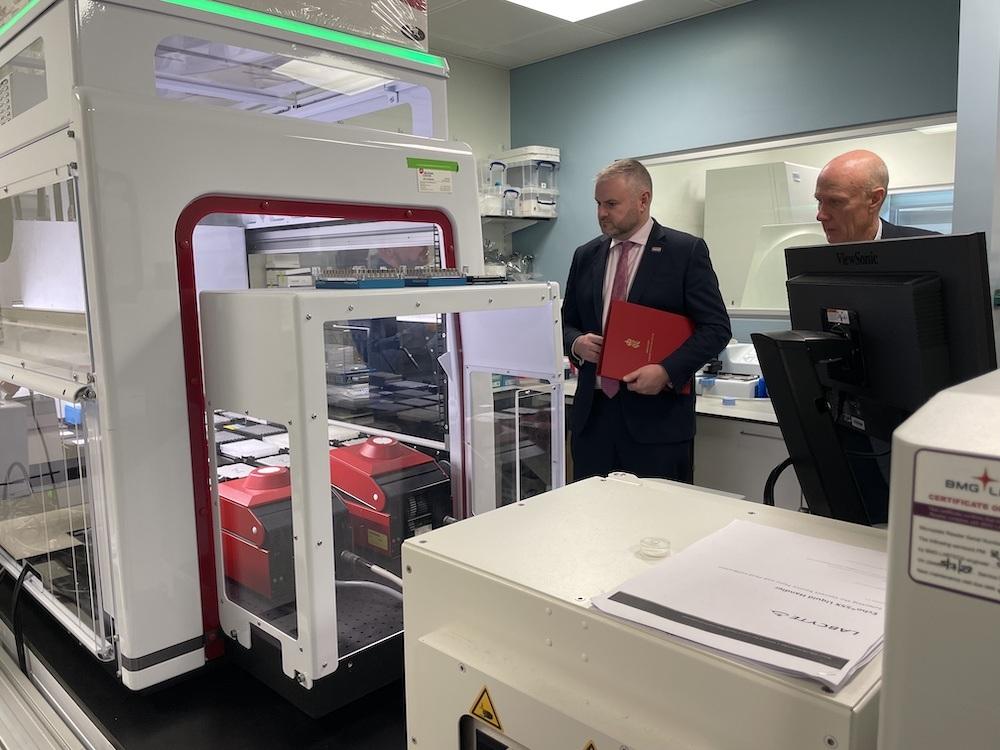On Wednesday 29 November, we were delighted to welcome the Minister for Health and Secondary Care, Andrew Stephenson CBE MP, to visit the UK DRI Centre for Care Research and Technology, based at Imperial College London (White City Campus).
The visit was hosted by Prof Siddharthan Chandran (UK DRI Director), Prof David Sharp (UK DRI Centre Director, Care Research & Technology), Prof Paul Freemont (UK DRI Group Leader, CR&T) and Prof Deborah Ashby (Interim Dean of the Faculty of Medicine, Imperial College London).
During the visit, Stephenson met UK DRI researchers who specialise in a range of disciplines, including neurology, synthetic biology and occupational health. The Centre brings together experts in these areas and many others, to create a highly multidisciplinary team working together to find new ways to support people who are living with dementia today.
The Centre’s flagship programme, Minder, is a sophisticated home monitoring platform that augments clinical care and detects early signs of problems, promoting wellbeing and reducing preventible hospitalisations in this population.
Stephenson visited the Centre’s interactive “Living Lab”, where he was shown some of the newest devices that are being developed and validated in a model home environment. The team demonstrated how an inexpensive sleep mat can detect respiratory rate and heart rate, as well as how often a person gets in and out of bed, enabling them to detect a range of problems early, from increased agitation to COVID-19 infection.
Stephenson asked questions about the platform and its potential uses to enhance NHS care for people living with dementia, drawing on his own experience as a Community First Responder with the North West Ambulance Service.

gave the Minster a tour of SynbiCITE, where he is developing point-of-care diagnosis and testing devices using synthetic biology
Prof Paul Freemont also gave Stephenson a tour of SynbiCITE, which is located next door inside Imperial’s I-HUB building. Here, Prof Freemont uses synthetic biology methods to develop point-of-care diagnosis and testing devices, which could transform the management of common infections such as UTIs, enhancing at-home care for people living with dementia.
Read more about the visit in Imperial's news article.
Article published: 30 November 2023
Image credits: Imperial College London
